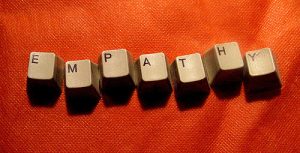Health
A friend texted me the other day while I was lying on my back under the glaring light of my dental surgeon’s chair.
How are you?
I’m still sick. [Attachment: photo of me on laughing gas.]
You have had the (poop-emoji-est) January ever!
[Interpret ‘poop-emoji-est’ as you wish: wasteful, crap-natious, grossest, unbelievably garbage, and so forth.]
It made me lopsided smile through the dental dam, needles, drills, suction, and mind-altering medications. Because she put it quite right. It has been a doozy of a winter.
If you would permit me a moment of painful honesty and at the risk of exposing myself to be less than super-powered, super-positive, super-super Sarah:
I have Celiac Disease, a severe gluten allergy. I was diagnosed in 2002. For the most part, I have it well controlled with diet, exercise, and strict precautions. That said, it’s a lifelong autoimmune disease that has weakened my body’s ability to fight off most passing viruses. I try to keep as far from infectious disease as possible. Hard to do, right? Even harder when you’re a traveling author handshaking, hugging, and sharing meals with reader friends and strangers. Needless to say, I catch things. But never has it been like the winter of 2019.
In the spans of five weeks, I contracted a malicious fever virus, followed by an upper respiratory flu that turned to bronchitis; paroxysmal coughing from infected airways put me on an inhaler all hours of the day and night, unable to sleep, to breathe, to speak, and producing extreme exhaustion, dehydration, and medication induced GI distress. In the midst of this, I could not put off having planned dental surgery: a tooth abscess and a number of cracked teeth. I stress grind… a lot. All of this. In five weeks. That was just the physical. Emotionally, I hit a major low, which was more debilitating than the illnesses.
I didn’t feel like getting out of bed some mornings. I didn’t feel like getting in bed some nights. What was the point? I was miserable either way. Never before had I experienced such an out-of-body pessimism. I couldn’t read: it hurt my eyes. I couldn’t write: it hurt my head. I couldn’t watch movies: too loud! I couldn’t go outside: I’d catch my death of cold. I couldn’t get warm inside: shivering with fever. There were moments at my writing desk when all I could do was cradle my teacup and close my eyes; block out everything else, remove myself from reality, and float in the nothingness.
In the midst of one of those dark moments, I began to think about writers with chronic illnesses. No, I became obsessed with them. It seemed the only Internet search for which I had the strength. I wanted to know their stories. Because I could not imagine if my malaise and suffering continued for months, years, even decades. What I found gave me a whole new respect for many of my favorite authors; men and women who silently bore lifelong diseases, pushed through the depression that comes alongside of extended illness, and created powerful art.
Here are a handful of the many, living and gone, who exemplify endurance and inspired me to speak up about the realities of being a chronically ill, flawed, less than super-powered, human.
Read MoreThis fall, I started a job teaching 7th grade English. It began as a part-time job, just .5. Then, three weeks ago, the other 7th grade English teacher resigned, and since then, I find myself teaching his classes as well as mine … meaning that I am 1.2 time. Meaning that now I really have zero time to write.
But while I miss writing terribly, I love my students so much, partly because seventh graders are so easily grossed out. For example, if I want them to move their desks together into little pods, I say, “Please make your desks kiss!” They find that so gross. Which makes me laugh. Which means I laugh a lot more than I ever did as a .5 teacher. I love laughing while working.
What does not make me laugh at work? What does not bring me joy? Teaching poetry.
Reading poetry fills me with dread. Talking about poetry multiples the dread. Presenting my students with poems that I don’t understand? That’s dread to the power of infinity.
So, three weeks ago, on the first day of the Poetry unit, I decided to be honest with my students.
“I have a confession,” I said.
The kids grew instantly silent and perfectly still.
“Please don’t tell anyone,” I continued, “because English teachers can get fired for something like this. But here’s the truth: I don’t love poetry.” I cringed. “Some poems, in fact, I find really, really … boring.”
A few kids nodded.
“So I promise,” I continued, “we will only study poems that, at least in my opinion, aren’t boring.” I held up three, glued-together fingers as if making a teacher oath (which may have in fact been the Girl Scout Promise). “We will only study poems that change the way we see the world.”
I wasn’t sure where this past part came from. Did poems change the world? And if so, how? And why? And where were these particular poems?
To be clear, there were a few poems I did like. Ones by Wislawa Szymborska, Billy Collins, and William Carlos Williams. Adrienne Su, Adrian Matejka, Nikki Giovanni. But I didn’t care for the canon of poetry, the ones I read when I was in school, the ones I taught in previous teaching jobs. Those poems never ignited me. Poetry was a chore. Poems were so darn serious! Plus, I could never remember the differences between trochaic, pyrrhic, and spondee feet.
But then I learned about talking subway seats.
Read MoreFlickr Creative Commons: in lovely memory
My older daughter is six months shy of being a legal adult. The approach of this milestone has been fraught with anxiety, so I anticipated a rough night before she embarked on a new semester at the local community college. She’s taking an extra class this time. She has a part-time job. She worries about keeping up with it all. What I did not expect was for her to lament that she saw nothing to look forward to in the years to come. Community college will only lead to a regular college, which she is lukewarm about attending. College will only lead to a job she hates.
“What’s the point in any of it?” she asked. “Every adult I know is miserable.”
The weight of her negativity made remaining in her presence physically uncomfortable for this empath, but I couldn’t allow that comment to slide unchallenged. True, her father comes home shell-shocked from work most nights, but he isn’t all adults.
When I balked that I’m not miserable, she bestowed that special expression teenagers reserve for parental observations that conflict with their worldview. “Well, you’re not happy.”
I hadn’t given much thought to the idea of happiness lately, having spent the last four years as an involuntary sponge, absorbing the stress of one family member after another. I’d wring myself out only to fall into another puddle. I self-medicated with almost daily mocha lattes I no longer tasted, let alone savored. On particularly stressful days, I’d add a muffin, too.
I now own fat clothes.
She was right. I wasn’t happy, but what she had not lived long enough to understand is that happiness isn’t something that simply happens. It must be chosen. Every day we get to choose.
She had thrown down a challenge to prove her wrong, to show her another way. This was a wake-up call.
I’m convinced that much of what we call “writer’s block” is a consequence of emotional overwhelm. We are wired to put ourselves into the shoes of others, to share and, let’s be honest, sometimes to exploit their struggles by weaving them into a story. Easy prey to the perils of empathy, we become ensnared in that cycle of absorb/wring out/absorb and forget to allow ourselves to dry off in the sun. We forget to take care of ourselves. We forget to do the things that help us recharge, to pursue joy. Under these circumstances, when we have nothing left to give, is it any wonder our work can suffer, or even stall?
Read MoreI love satire in general and Saturday Night Live in particular, but there’s one series of sketches I wish I could erase from my mental library: Al Franken’s take-down of the 1990s’ self-help industry in the form of his character, Stuart Smalley.
Have you seen these skits? They feature an effeminate man who dresses in pastel sweaters and speaks with a lisp. Having affixed a goofy smile to his face, he looks into a mirror and spouts several affirmations that are patently untrue, full of psychobabble, or so non-specific as to be incapable of helping anyone take positive action.
Here’s a short example of Stuart preparing to tape a segment:
And if you’re still on Facebook, here he “helps” Michael Jordan.
Why do I regret having seen these videos?
Setting aside political issues about the actor and the cringeworthy reinforcement of rigid gender roles and stereotypes, my objections are two-fold:
How I became a convert:
Though I’ve been writing for decades, during 2018, I feel like I finally became a writer—one with modest external success, and with ambitions that exceed her grasp, but a writer nonetheless.
Part of this is a function of experience; having now written three novels, the third of which will come out in February, the writing bug has only intensified. It’s becoming undeniable to the world, and more importantly to myself, that writing is part of my identity.
But part of this is that, while composing my third novel, I finally developed rituals to conquer pre-writing anxiety. Surprise! A big part of that was developing writing-related affirmations.
Given my tortured recollection of the Stuart Smalley era, I started small and somewhat accidentally.
One day, when beginning the book on a tight-for-me deadline and with little idea of where I was headed, I sat down to write my first chapter—only, it wasn’t going well and I was entering a self-perpetuating cycle of blockage and negativity. “What happened to having fun?” I remember thinking. “What happened to my pledge to write with the growth mindset?” (If you haven’t read Carol Dweck’s book, Mindset, I urge you to pick up a copy, especially if you are a parent.)
In a state of supreme frustration, I picked up a blank recipe card and jotted down the following:
I write joyfully and with an experimental mindset. I often discover the best material in the spirit of play.
Writing that was like setting a mental goal post of sorts, yes? To my surprise, it helped—immediately and for about a month, until something happened in the real world and I could no longer conjure a playful attitude for the life of me. Suddenly, that single affirmation felt stifling in its own right. I mean, on top of coping with everything else, was I supposed to fake my way into having fun so that I could write?
Obviously that wasn’t going to work.
The answer turned out to lie within another […]
Read MoreI am restless today. It’s been three weeks since I emailed a draft of my new book to my editor and agent. I’ve been dreaming in plots for a few days now, and I have done all the things I said I would do “when I finished the book.” Well, not all of them. Turns out I don’t always want to be in the garden.
I want to write. That’s pretty much what I always want to do. Write books, columns, essays, journals, ideas, plans—whatever. Writing is my natural state.
But just now, I can’t really get my mind to settle into anything. I can only write this piece because I’m observing my own process. Like Vaughn last week, I’ve started and abandoned several columns, unable to stick with any of them. One has potential and maybe I’ll get back to it, but I just don’t have the wherewithal to do it justice right now.
This is what I’ve got today:
I’m creatively exhausted. The final push for the most recent book was brutal, mostly because the subject matter was so intense that the girls in the basement arranged for me to only know everything in the final three weeks of the book, which means I lived a bunch of revelations and reversals right along with my characters and wore myself out physically as well as emotionally.
That’s fine. It’s just that now I don’t quite know what to do with myself. I take long walks and listen to podcasts. I play with the dogs. I read. Paint. I’m taking a watercolor class online which has a fair amount of homework, and that allows me to indulge in some kind of creativity.
It’s been three weeks. That seems like a long time. In terms of the outside world, a three week vacation is a very nice break indeed.
Clearly not long enough.
Read MorePhoto Credit: Dalma Szalontay – “A surreal ride … There is nothing so good that can not be improved …”
Recently, I had this weird sensation come over me. What is this feeling? This … this thing? Well, what do you know? I was feeling contentment. Huh. Dang! And having that acceptance and contentment, and happiness, slap me upside my hard head had me think about the journey to finding some peace and joy.
After my father’s death six years ago, where there was no sudden last pages of a novel having us say all the things we never said and as the reader comes to The End, with little pearls of tears glistening, The End is resolved rather satisfyingly, the only peace that came was right before I felt my father’s pulse slow, slow, erratic beat, stop, and a man who was never ever still, a man who was loud and so THERE in any room he filled with that frenetic jittery energy, was suddenly so so very unnaturally awfully still, and that glimpse of peace I mentioned came moments before he died, when I held his hand and I fitfully dozed and there came a quick and sudden dream of a beautiful blue horse galloping into the sky, up up up and out of sight.
After that, for reasons known and unknown when we face an unexpected not-so-go-gentle-into-the-good-night death of someone important, Pandora’s Box rend asunder and I began to uproot many things in my life, walked away from some, ran from others, and through my scrambling amok both good and bad and in between, circumstances led me to have to give up the pretty sweet deal of being a writer full time so I could step out into a big empty space of possibility. Instead of thinking as an adult and being wise and all grown-uppy about it, I stumble-bumbled myself willy nilly** into messes and not-good-for-me men and right into a dark abyss of snarl. (It’s a big eye-opener to realize that you’ve approached much of your adult life with a child’s eyes and not a grown woman’s eyes—ouch, that recent insight was painful to admit!)
But, hey! From that murky crapitude I stepped into the light time and I didn’t even acknowledge the complete change rising up in me because I was so used to being Oh, It’s Just That Cray Cray Kathryn.
No miracle happened. My books didn’t suddenly fly off shelves, or even make it to a lot of shelves. I haven’t had time to write the book I so desperately want to have much more time to write; the bills still come, the mortgage still needs to be paid, I have to eat; you know, all those grown-uppy thangs.
So what changed to make the change?
Welp, y’all, it’s how I perceive my world and how I want to live in it and who I want to live with in it. This growth took a lot of uncomfortable looking in the mirror, and, ugh, soul-searching—double ugh (thus, the child’s eyes discovery).
So, when you are feeling negative, or like a “failure,” or struggle with whatever big dark bug has you in its scrabbly-legged grip, maybe my do and don’t ‘list’ […]
Read MoreFear is a liar.
Fear will break your courage, steal your dreams, and tell you that neither you nor your art will ever amount to anything.
Of all the many hurdles that stand between writers (or any other person) and their dreams, fear is often the hardest to fight, and the easiest to surrender to.
For many years, I lived in fear of failure. I refused to write, despite the stories that burned inside me, because I feared that if I tried and failed I would lose the only identity—that of writer—that had defined me as long as I could remember. I went to law school instead of pursuing a career in writing, because I wanted stability I didn’t believe I could get from writing. I continued to practice law even after my first novel, Claws of the Cat, was published in 2013.
I told myself there would always be time to travel more extensively in Japan, to climb the Nihon Hyakumeizan (hundred famous mountains of Japan) and to break through the wall of fear that kept me chained to the security of a lawyer’s life.
Last September, as I faced the upcoming tenth anniversary of my father’s death, I decided to face my fears, take a sabbatical, and spend a year in Japan climbing mountains and writing at least two books (one mystery and one nonfiction book about my attempt to become the oldest American woman to climb the hyakumeizan in a single year). It was time to take a chance and pursue my dreams, despite my many fears.
And then, in November—just as my husband and I prepared to sell our house and move to Japan—I was diagnosed with a highly aggressive form of breast cancer. Fortunately, we caught it at Stage 1 (a side note: ladies, please get regular mammograms—the one I had last November literally saved my life), but instead of heading off to Japan, I found myself facing major surgery (double mastectomy) and four months of intensive, dose-dense chemotherapy.
In my former life, that diagnosis and the fight against cancer would have killed my dreams. I would have let my fears—of the cancer returning, or not having the strength to complete the mountain climbs—derail my plans. I would have retreated into a place of self-pity, excuses, and sorrow, and accepted that climbing mountains (much less writing books about it) was a job for people younger, stronger, and more capable than me.
But that cancer diagnosis taught me a very important lesson: none of us has a guaranteed tomorrow, no matter how safe and secure our lives may seem. Fear will always predict your failure—but if you never try, you can’t succeed.
Read MoreTwo months out from the deadline for a novel with more than usual riding on its success, I don’t feel super confident about crafting a post full of wise advice for writing more effectively, or engaging more meaningfully with readers, or bravely addressing big social issues, or achieving a better work/life balance. The last few weeks before the deadline tend to be a time of weariness and anxiety, characterised by too much black coffee, over-consumption of sugary foods, snappish words addressed to the other members of the household (the dogs, in my case), and restless nights visited by repetitive dreams of failure. You know those dreams – they feature scathing reviews, book launches attended only by the author’s family, interviews in which the author is made to look a complete fool, and being constantly late for things. Then there’s another kind of dream, in which your editor sends you a so-called ‘structural report’ which may just as well read: This novel stinks and needs a complete rewrite. You have one month to do it.
Oddly enough, these symptoms visit you even when you’re fairly happy with your manuscript. I know I still have a lot of revision to do, but I’ve budgeted the time so I’ll submit the thing by the required date, barring catastrophes. I’ve been through this twenty-odd times before. I should know what I’m doing. But I’m coming back to it after a couple of years off, and that seems to make a difference. Those unproductive years were a time of personal distress (the death of a beloved dog under violent circumstances) and career setbacks (a mismatch between what I truly wanted to write and what was deemed commercially viable.) So I was derailed from my usual pattern of producing one substantial novel per year – my readers have had two years with no new book. Unsatisfactory. Demoralising. What could be done about it? Was it the end of my writing career?
Read MoreFlickr Creative Commons: darkday
I ignored the signs for months, convinced the anxiety, crying jags, insomnia, and moments of rage were hormonal potholes on Perimenopause Lane.
In my defense, life has thrown a few curveballs since December. Before I could send out queries on my newly completed manuscript, I came down with the flu. On Christmas Eve. This illness transitioned into a violent asthmatic/allergic cough that remained until mid-March. I lost fifteen pounds (good) but only because I could barely eat or sleep (bad). During this time one of my daughters was diagnosed with an anxiety disorder. A few weeks later her best friend received a lymphoma diagnosis. An elderly aunt and special needs cousin moved to Dallas and their new home required a major face-lift. I threw myself into helping them, trying to ignore the lack of response to my initial queries. I later discovered those same queries, unwisely proofread and sent between coughing bouts, contained a glaring typo in the second paragraph.
The ‘I am a complete failure’ refrain began and spread its venom into all aspects of my life until I questioned every decision I’ve ever made. After decades of writing and little published work to show for it, I must be a talentless hack. My daughter would not struggle so much if I’d recognized earlier how crippling her condition had become. My marriage of twenty years would be richer if I’d encouraged my husband’s full involvement and support with the children rather than letting him play computer games while I juggled everything on my own. (To be fair, he involves himself when asked.)
The only glimmer of happiness came when my other daughter discovered that her crush not only liked her back, but that he embodied the word “gentleman” and came from a family who welcomed her into their fold with open arms. Being a romantic, empathic by nature, and teetering on the brink of depression, the temptation to vicariously experience her joy proved irresistible. This high doubled when I saw the adoring expression he perpetually wore in her presence, though over time this feeling was accompanied by a sharp pang of motherly protectiveness. (For him!)
Perhaps I sensed that it was only a matter of time before she’d bristle when teachers referred to her not by name but as the girlfriend of a popular kid, before she’d decide she was too young to be with a boy who claimed (quite earnestly) that he hoped she’d be both his first and last girlfriend. When that day came and she let him go, I struggled to praise her self-awareness and maturity.
It was at that moment I realized I was not okay.
I’m in a place where many creative types find themselves at some point. According to a large-scale Swedish study at the Karolinska Instituet, families with histories of bipolar disorder, schizophrenia, depression, anxiety syndrome, drug and alcohol abuse, ADHD, anorexia and suicide are more likely to include people in creative or scientific professions. The study concluded that writers in particular were common among sufferers of schizophrenia, depression, anxiety and substance abuse, and were almost fifty percent more likely to commit suicide than the general population.
Read MoreIt’s after he’s asked me the question for the third time that I stop following the developing plot line in my thoughts, mentally plug back in to reality, and replay the words that have been spoken repeatedly in my direction.
“Can you pick up dinner on the way home?”
It’s an easy question, with an easy answer, which I give him right away. He’s used to living with a writer, so instead of an argument about my lack of attention, he just gives me an eye roll and a heavy sigh because it took three tries to get that simple answer. Only three. Not five. Or six.
But then, he’s used to the perils of living with a writer.
All the writers that I know have supporters–the people who enable them emotionally, intellectually, professionally, and even financially–to continue the quest for a life as a writer. I’ve had many conversations with other writers that express gratitude for what these supporters provide. I’ve seen many similar posts in the WU Facebook group. Sometimes, however, it is good to acknowledge our supporters—whoever they may be—directly, and to recognize them for their patience and at times bottomless good humor. Below is my gratitude list, acknowledging what my supporters deal with.
If you see yourself in any of these situations, then please take the time today to say thank you to one of your supporters.
Could you Ask that Again?
There are periods in writing when the work takes over a writer’s consciousness. Some call it ‘immersion,’ or ‘flow,’ or being ‘in the moment’. Whatever you call it, it means a writer is more deeply enmeshed in his or her thoughts than in the surrounding physical world. This complicates planning daily existence. It is why my supporter asks me the same question three or more times before getting an answer. And that can get frustrating very quickly. Over the years we’ve learned to minimize arguments with a simple strategy. I tell my supporter when I’m at a stage that requires me to go deep and get lost in my fictive world. This lets him know that slow answers don’t mean I’m ignoring him and he can be more patient. Then he’s able to wait until I plug back in to reality before he asks the question. He isn’t repeating himself, and I’m not feeling neglectful.
Seesaw Confidence.
Friday, 9am. Comment to supporter—I just finished re-reading what I wrote last night and it’s brilliant. I’m genius. I’m the next great writer.
Friday, 9 pm. Comment to supporter—I just re-read what I wrote this morning and it’s dreck. I’ll never finish this. I can’t write. I should just give up this crazy idea and live a normal life. There’s nothing wrong with just living.
Read MoreHooray! My kids (age 12 and 14) went back to school last week.
Boo! I have a puppy who’s on day four of diarrhea and mild depression. (The puppy has the intestinal distress. I have the depression.)
As someone with bipolar 2, I tend to spend most of my unstable-mood time in depression rather than mania. And as my husband recently reminded me, I tend to take a dip each September. I hate that about myself. By now I really should have control over my moods … you know, just like someone with poor eyesight should have control over how light rays bend as they pass through the cornea. Ha.
Beyond the current mood slide, the past ten months have offered other distractions that have pulled me from noveling: two nasty surgeries (foot and sinus), freelance projects (huge in time, dinky in money), adventures in caring for aging parents, roller coaster rides with a particular teenager whom I love very much. And of course, summer: 2.5 months during which my kids became obsessed with magic tricks. I watched a lot of magic tricks over the summer. Maybe about 450,000 magic tricks.
I wish my kids could teach me to wave a magic wand and make depression disappear. Escort it into a box then saw the box in half. Turn it into a beautiful white dove. I wish my kids could magically pump the world with a little helium so it didn’t feel so dang heavy.
I am getting to my point.
You, too, might have fragile brain wiring. You might have had recent health adventures, family obligations, loads of work. You might be an over-empathizer who feels weighty sorrow on behalf of those facing hurricanes, racism, famine, acts of terrorism and 8.1 quakes. Your heart might be cracking on behalf of refugees, immigrants, and the general state of the not-very-United States.
Aren’t I cheery today!
My point (in the form of a question) is this: When we are in one of these unwelcome periods where the world weighs too much, when we feel flat and sad and weary, when we are distracted by life’s life-ishness, how do we keep writing? Or in my case, how do I start writing again?
I might have an idea.
Read MoreReading that title might have you scratching your head. What is tricky about perfection? What could possibly be wrong with it? Surely it’s a good thing to try our best and strive to improve. And indeed, conventional wisdom tells us that if we write the perfect book, have the perfect social media presence, and conduct the perfect marketing campaign—success will be ours!
But perfection isn’t that simple and there is a difference between striving for excellence as a way to do our best versus chasing the illusion that any human creative endeavor can be perfect. Striving for your best work is vastly different from holding yourself to impossibly perfect standards.
Perfection is the trickster god of virtues because it fools you into thinking it IS a virtue. That it’s an indicator of how much you care, how hard you work, how dedicated you are. But in reality, perfection is often not about any of those things. It is an unattainable, unreachable illusion and in pursuing it, we often kill or destroy some of the most human and joyous experiences available to us.
Perfection insists that we perform our lives rather than live them. That we allow external measures to shape and control our happiness rather than our own lived experiences, and therein lies its peril.
Some hints you might be a perfectionist are:
But wait! Even if you got through that list and didn’t see yourself, you’re not free yet because overachieving is a form of perfection. (Remember that Trickster God of Virtues, thing.) So you might also be a perfectionist if:
This kind of perfectionism is often rooted in a need to exceed expectations and be above reproach. It is one, I might add, that writers are especially vulnerable to because there is such a degree of luck in any writer’s success and we feel we must do everything in our power to earn and justify it.
So what’s a perfectionist to do??
Read MoreFor a moment when work isn’t so demanding. For an hour when the tween stops putting up full resistance to simple requests for help. For a day when negotiating the family schedule doesn’t take high-tech gadgets, extensive three-way discussion, and caving on core values as to what, exactly, constitutes a good meal. For a week when the to do list actually grows shorter.
Then, I think, when one of those miracles happens, I will have time. Time to enjoy my daughter’s fast-dwindling childhood. Time to travel. Time to read. Time to do everything that I’m not doing now because I have to do other things that other people have asked or paid me to do. But most of all, I think that when one of those miracles happens, then I will have time to write.
I’ve been an idiot. Waiting will not bring any of that to pass.
Life is a roller coaster. My life track is being formed in front of me one second before I careen onto it. I am always one track-second away from the final crash. And that, my dear fellow writers, is the only lull that our delicate beings ever encounter with absolute certainty. That lull does not bring us any closer to doing all the things that we are not making time for now.
A close family member recently experienced that final crash. That jarring tragedy proved without a doubt that death does not bring satisfying closure or tidy completion. Just a passing and a painful pileup of life debris left behind for the survivors. Going through that debris brought me face to face with the inevitability of the daily undone–the cumulative consequences of what an individual chooses to do, and not to do, every hour of the day.
In the aftermath, I have been facing down a life-altering truth. My entire existence has been built on rewarding myself with time to do what I love only after all the work is done. And, after having been raised to be responsible and to believe that hard work will lead to a payoff (someday), I have signed on for far more work than I can ever finish. If I keep on this path—waiting until the responsibilities are all met before there is freedom to do what I enjoy—then that huge mess, the weight of the undone, will hold all the fun. All the joy.
That means that the way to live is to make the time, not wait for it.
I am writing this blog as a means of coming clean, and of having others hear my intentions, and to keep me honest. I am about to alter my life.
Read MoreI just finished listening to a podcast called S-town. It’s a tough and amazing story, though not for the faint of heart, cursing-wise and other-stuff-wise, but I fell in love with the main character, John B, by the end of the first episode.
(The skinny: A resident of S-town, Alabama, John B. emails the folks at National Public Radio’s This American Life, imploring them, somewhat relentlessly, to come down from New York and help uncover a covered-up murder. The nice folks at TAL do indeed head south, and the S-town podcast is born.)
After listening to the first episode, I texted my husband the link to the podcast with this message: You have GOT to listen to this. The main character is fantastic. You will love it.
My husband listened to the first episode. He liked it. He didn’t love it.
I couldn’t figure out why this man I loved so much (my husband) didn’t love this other man I loved so much (John B.) until I started listening to the second episode. And then it hit me: John B. and I were cut from similar cloths. He felt familiar.
While he is not someone with whom I’d want more than a podcast relationship, I felt a kinship with this Alabaman. Why? Because John B. obsesses. He cannot stop thinking about things like climate change, making a hedge maze, caring for stray dogs, climate change, and don’t forget climate change. He says he hates where he lives. He cannot abide the racism or the lack of quality education. He cannot believe people don’t care that polar ice caps are melting. He counts minutes and repairs old clocks and determines the meaning of a life well lived, and he is terrified that people are not paying attention to, for example, climate change. I think it was the second episode where he says something to the effect of, IS ANYONE PAYING ATTENTION?
I wonder that very question a hundred times a day.
A few weeks ago, we had a sunny, perfect Seattle-weather day. My husband and I sat outside, watching our puppy go nuts over a squirrel that was fifty feet up the huge pine tree in our tiny yard. Up on his hind legs, the pup was barking and chewing at the tree bark as if he were part beaver. It’s not healthy, his squirrel obsession. But it feels familiar.
Before the squirrel arrived, my normal husband and not-so-normal I were talking about Ariana Grande concerts, refugees, politicians, the deaths by suicide of Chris Cornell, an 8th grader in our community and a 7th grader in the next town over. I talk about these topics quite a lot, mostly because I want to understand how certain things happen, and why they happen, and is there anything I can do to stop them from happening? And again with my threadbare question, Is anyone paying attention?
I took a breath. I asked my normal husband, “Does it bother you that I can get a little … obsessed?”
Read More





















